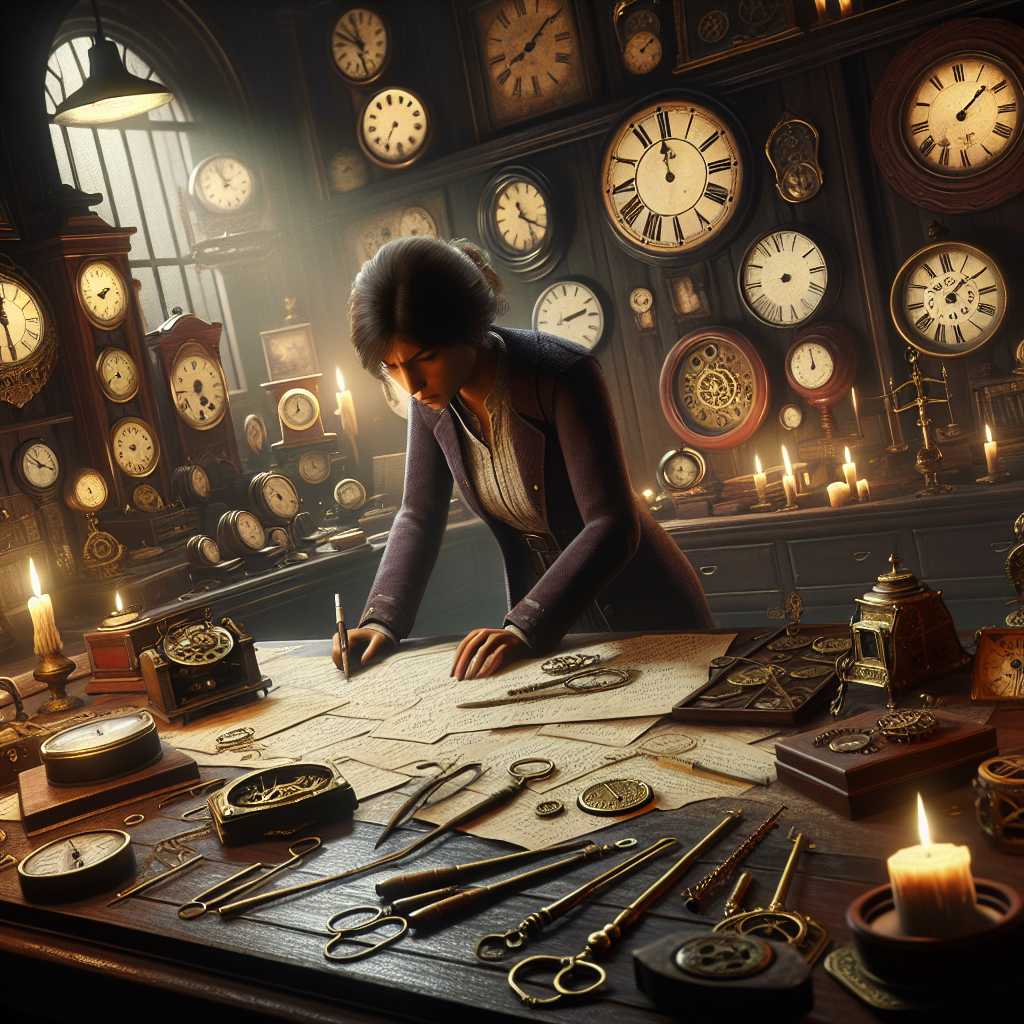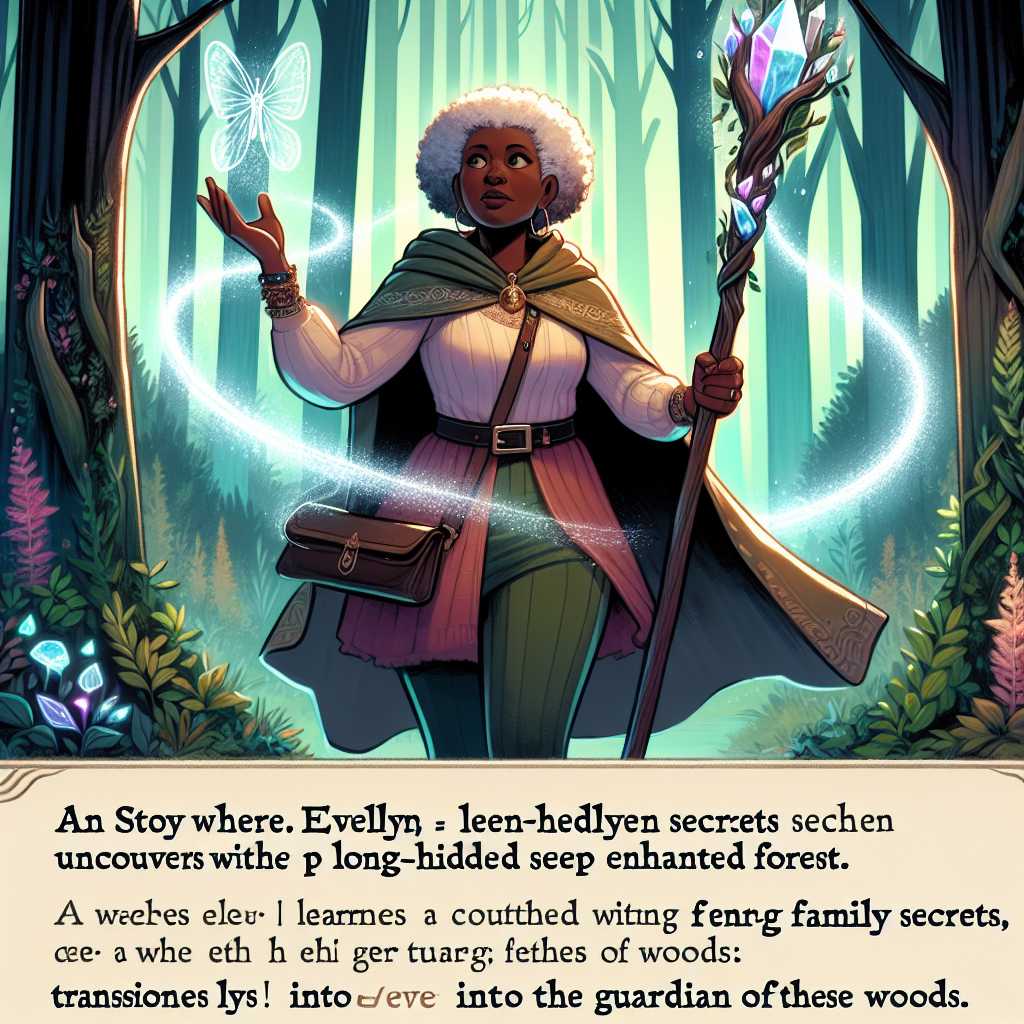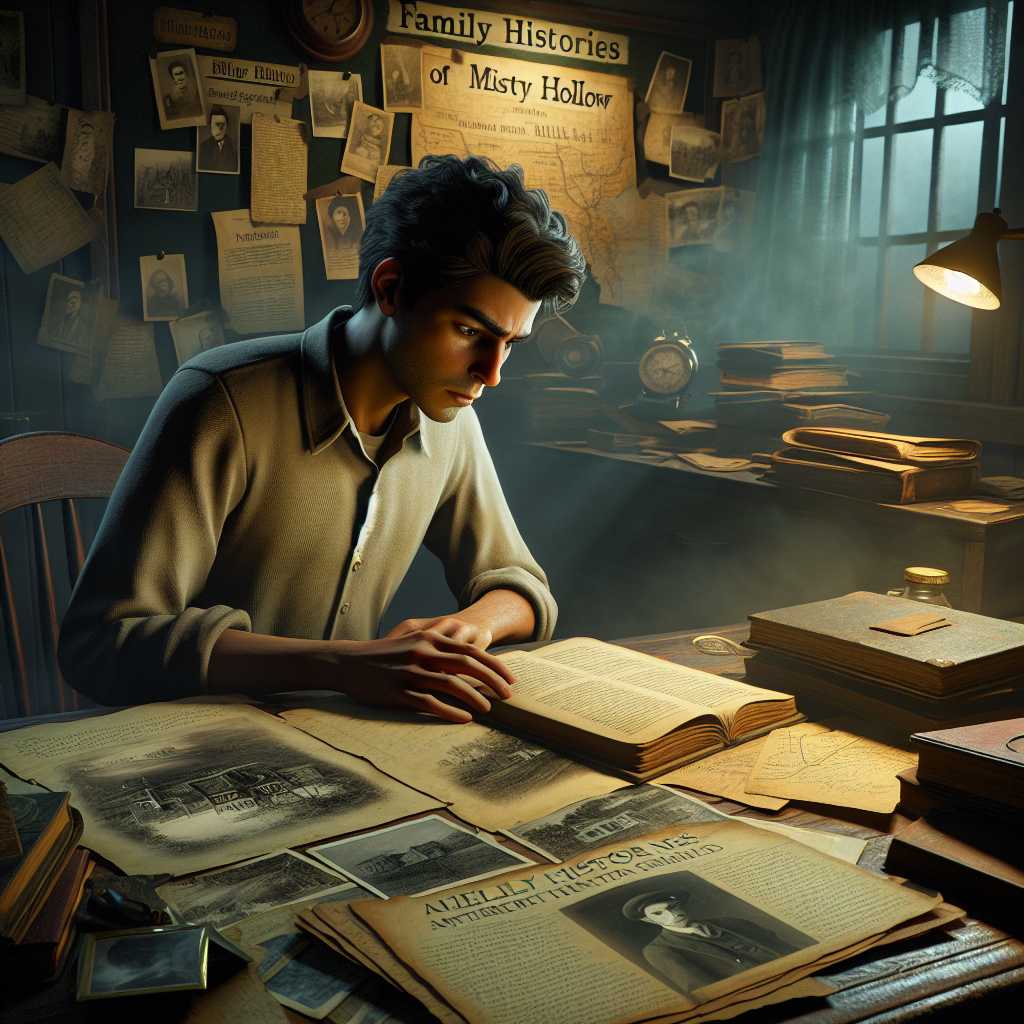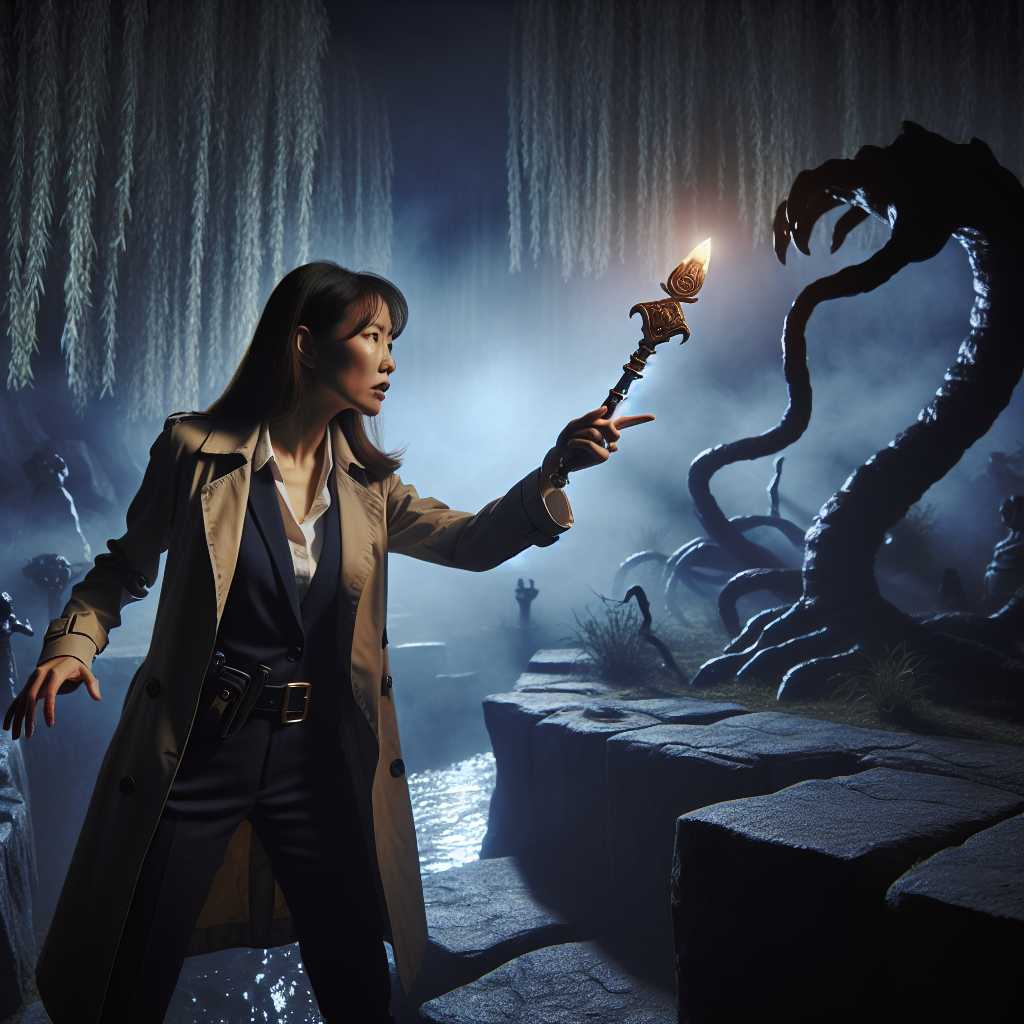
In the fog-laden town of Eldergrove, nestled between hills that always seemed to whisper secrets, there lived a renowned clockmaker known as Horace Everly. The townsfolk spoke of him as a master of his craft, a man whose timepieces were not just instruments to measure hours but to capture them, freeze them in delicate frames of wood and glass. It was said that when you wound one of Horace Everly’s clocks, you wound the earth’s very essence back into its bones. However, one cloudy morning, the entire town was shaken by the news of Horace Everly’s untimely demise.
Miss Eliza Morland, the town’s unofficial chronicler and a woman with a penchant for unraveling enigmas, found herself standing in front of Horace’s quaint little shop. The sign hung lopsidedly, suggesting that, just like the man, it too had lost its sense of purpose. She stood there, her keen eyes sifting through the early morning mist, noticing how it seemed to cling to the place as if reluctant to let go of the stories it housed.
The police had cordoned off the entrance, but Eliza, with her familiar nod to Inspector Arthur Blackwood, was permitted entry. As she stepped inside, the familiar tick-tock of numerous clocks greeted her—a morbid symphony now out of tune. On the floor, amidst shattered glass and the silence that death brings, lay Horace Everly.
“Inspector,” Eliza began, her voice steady, “what have we here?”
“No signs of forced entry, Miss Morland,” Inspector Blackwood replied, kneeling near the body. “And nothing appears stolen. It’s as if the poor man simply... stopped.”
Eliza’s gaze drifted to the grandfather clock by the back wall, its pendulum eerily still. That was odd, she mused, for despite everything, Horace’s clocks never stopped.
With the inspector’s permission and trust, Eliza moved through the workshop. Her fingers brushed against tools of the trade, rests of brass and wood, each telling a tale of a creator interrupted. It was then her eyes caught a glimpse of something peculiar—a lone, leather-bound journal on the workbench, flipped open to its last entry.
“To whom it may concern,” it read in Horace’s neat script, “Beware the clock that tolls without time, for it beckons shadows to life.”
Eliza’s brow furrowed. The cryptic note seemed both a warning and a revelation. She pondered its meaning, letting the rhythmic pulse of distant clocks guide her to a conclusion—that this was no mere accident or random act of violence.
“Inspector Blackwood,” she called, an edge of excitement in her voice, “we must examine the clocks more closely. Horace must have left us a clue.”
Together, they scrutinized each antique piece, searching for discrepancies, hints of tampering. It was an ornate mantel clock, one Eliza recalled as Horace’s favorite, that gave them pause. Its weight was surprisingly uneven, and upon closer inspection, Eliza found a cleverly concealed compartment within its base.
Inside, they discovered a bundle of letters entwined with a faded ribbon. These correspondences detailed a series of disputes between Horace and a rival clockmaker, Elias Finch. The letters seethed with professional envy and hinted at secrets best left undiscovered.
The inspector frowned deeply. “He must have been blackmailing Horace,” he deduced. “Perhaps over a design, or some other misunderstanding.”
Eliza felt a shiver of intrigue and dread intertwine. She recalled fleeting moments of tension between the two men, moments she had dismissed as simply competitive spirit. Now, it seemed, it had turned deadly.
“Whatever transpired, it means Elias Finch had a motive,” Eliza concluded, her voice firm with conviction. “We need to question him at once.”
The following morning, Elias Finch was brought in for questioning. The man’s visage was pallid, his posture defensive. He sat across from Inspector Blackwood and Eliza, his hands wringing a handkerchief with mechanical precision.
“I admit, we had our disagreements,” Elias stammered, “but I’d never harm Horace. He... he was a genius.” Yet, his denial sounded rehearsed, insincere.
Eliza leaned forward, her intuition sharper than ever. “Perhaps you could explain why you corresponded under such antagonistic pretenses?” she posed gently, yet pointedly.
Elias swallowed hard, glancing at the clock on the interrogation room wall as though pleading with it for assistance. “We had a falling out over a commission,” he confessed. “But it was resolved... or so I thought.”
The door swung open then, diverting all attention. Sergeant Lewis entered with urgency, whispering into the inspector’s ear news that turned Blackwood’s expression from one of skepticism to surprise.
“Elias Finch, you’re free to go,” Blackwood announced, a mix of confusion and revelation in his tone.
Eliza's puzzled look was met with Blackwood’s explanation. “There’s been an anonymous tip. Someone else—a former apprentice of Horace—has confessed to tampering with the clocks. Out of jealousy, they say.”
Relief washed over Elias, yet Eliza remained unconvinced of the larger picture, a sensation that something unsaid lingered in the air like unspent time. The case, though closed in legal terms, remained a puzzle. Horace Everly’s life was a tapestry of time, and somewhere within its threads lay the true answer—a mystery only time itself might reveal.
“Perhaps,” she mused to herself, “in Eldergrove, the clocks tick to their own mysteries, never quite revealing what they truly keep.”










